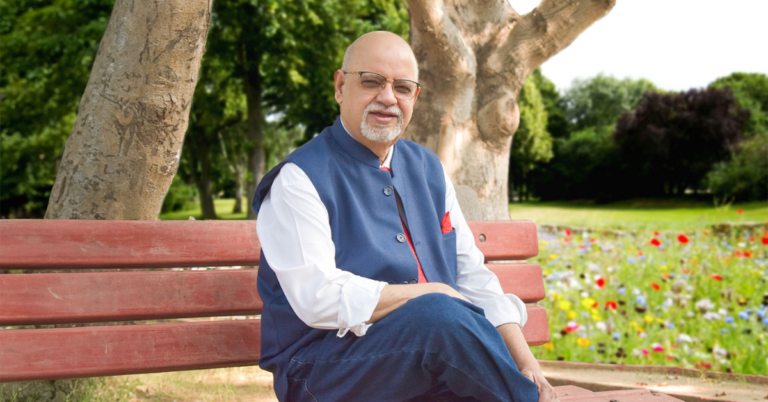The Ultimate Guide to Finding the Perfect Keynote Speaker for Your Event
A successful event hinges on many factors — venue, audience engagement, and smooth execution — but one of the most critical elements is the keynote speaker. A keynote speaker sets the tone for the entire event, inspiring, motivating, and delivering valuable insights to the audience. Whether it’s a corporate conference, a business seminar, a university graduation, or a motivational workshop, selecting the right Keynote Speaker can make a significant difference in how your event is remembered.
In this guide, we’ll explore the role of a keynote speaker, how to choose the right one, and why they are essential for the success of your event.
What is a Keynote Speaker?
A keynote speaker is the main speaker at an event, conference, or seminar whose purpose is to deliver a speech that defines the underlying theme or purpose of the event. The keynote speaker is often a subject matter expert, industry leader, or motivational figure who has the experience and credibility to captivate and engage the audience.
Unlike other speakers at an event, the keynote speaker is responsible for setting the tone, motivating the audience, and providing valuable takeaways that align with the event’s theme and objectives. Their speech is typically the highlight of the event and is strategically placed at the beginning or end of the program to create a lasting impression.
Importance of a Keynote Speaker
The impact of a well-chosen keynote speaker extends beyond just delivering a speech. Here’s why a keynote speaker is essential for your event:
Inspiration and Motivation
A great keynote speaker knows how to connect with the audience on an emotional level, providing motivation and encouragement. Their ability to tell compelling stories and share personal experiences helps attendees feel inspired and energized.
Credibility and Expertise
A speaker with a strong background in the industry or field adds credibility to your event. Their insights and expertise make the content more valuable to the audience, increasing the overall impact of the event.
Audience Engagement
Keynote speakers are skilled at capturing and holding the audience’s attention. Their use of humor, storytelling, and interactive elements helps create a dynamic and engaging atmosphere.
Setting the Tone
The keynote speech sets the mood for the entire event. A powerful opening keynote can energize the audience and generate excitement, while a strong closing keynote leaves attendees with a sense of purpose and direction.
Types of Keynote Speakers
Choosing the right type of keynote speaker depends on the goals and nature of your event. Here are some common types of keynote speakers:
Motivational Speakers
Motivational speakers focus on inspiring the audience by sharing personal stories of overcoming challenges, achieving success, and finding purpose. They are ideal for events where the goal is to uplift and energize the audience.
Industry Experts
An industry expert brings in-depth knowledge and experience related to a specific field. Their insights provide valuable takeaways for attendees and help position the event as a credible and informative platform.
Leadership Speakers
Leadership speakers focus on strategies and techniques for effective leadership and management. They are popular for corporate events, business conferences, and team-building workshops.
Innovative Thinkers
These speakers bring fresh perspectives and creative ideas, challenging the audience to think differently and embrace change. They are often sought after for technology conferences, creative summits, and business innovation events.
Celebrity Speakers
High-profile celebrities or public figures can draw larger audiences due to their recognition and influence. While they may not always be experts in the event’s theme, their presence can generate buzz and increase attendance.
How to Choose the Right Keynote Speaker
Selecting the right keynote speaker involves more than just picking a well-known name. Here are key factors to consider when making your choice:
1. Understand Your Audience
Consider the demographics, interests, and expectations of your audience. A keynote speaker who resonates with the audience’s values and experiences will create a stronger connection and greater impact.
2. Define Your Event’s Objective
Clarify the purpose of the event — is it to motivate, educate, or entertain? A motivational speaker would suit a corporate retreat, while an industry expert would be ideal for a business conference.
3. Review the Speaker’s Experience and Expertise
Evaluate the speaker’s background, experience, and track record. Have they spoken at similar events before? Are they recognized as an authority in their field?
4. Check for Speaking Style and Engagement
Watch videos of the speaker’s past presentations to assess their speaking style. Do they engage the audience? Are they able to hold attention and convey their message effectively?
5. Consider Budget and Availability
While you don’t need to choose the most expensive speaker, ensure that the speaker’s fee aligns with your event budget. Check their availability early to avoid last-minute scheduling conflicts.
6. Look for Authenticity
Authenticity is key to building trust with the audience. A speaker who shares personal stories, challenges, and successes will create a more meaningful connection with attendees.
Benefits of Hiring a Professional Keynote Speaker
Hiring a professional keynote speaker comes with several advantages:
Professional Delivery – Professional speakers have experience handling different audiences and delivering impactful messages.
Audience Engagement – Their ability to engage the audience ensures that the message is not only heard but also remembered.
Event Credibility – A well-known or respected speaker adds credibility and prestige to your event.
Increased Attendance – A high-profile keynote speaker can attract more attendees and increase event visibility.
Common Challenges in Hiring a Keynote Speaker
While hiring a keynote speaker can enhance your event, there are some challenges to be aware of:
- High Fees – Renowned speakers often charge high fees, which can strain your event budget.
- Scheduling Conflicts – Popular speakers may have tight schedules, making it difficult to secure a spot.
- Mismatch with Audience – A speaker who doesn’t align with the audience’s interests or the event’s theme can lead to disengagement.
FAQs About Keynote Speakers
Q1: What is the difference between a keynote speaker and a guest speaker?
A keynote speaker is the main speaker who delivers a speech that sets the tone for the event. A guest speaker, on the other hand, is usually invited to speak on a specific topic but may not have the same prominence or influence as the keynote speaker.
Q2: How long should a keynote speech be?
A keynote speech typically lasts between 30 to 60 minutes. The length can vary depending on the event’s schedule and the speaker’s style.
Q3: Can a keynote speaker take questions from the audience?
Yes, many keynote speakers include a Q&A session at the end of their presentation to engage the audience and address specific questions.
Q4: What should I provide to the keynote speaker before the event?
You should provide the speaker with details about the event’s theme, audience demographics, and any specific topics you’d like them to cover. A run-through or briefing session is also helpful.
Q5: How far in advance should I book a keynote speaker?
It’s best to book a keynote speaker at least 3 to 6 months in advance, especially if the speaker is well-known or in high demand.
Conclusion
A keynote speaker has the power to transform your event from ordinary to extraordinary. By carefully selecting a speaker who aligns with your event’s goals, audience expectations, and theme, you can create a memorable and impactful experience. Whether you’re looking to motivate, educate, or entertain, the right keynote speaker will leave a lasting impression and contribute to the overall success of your event.







